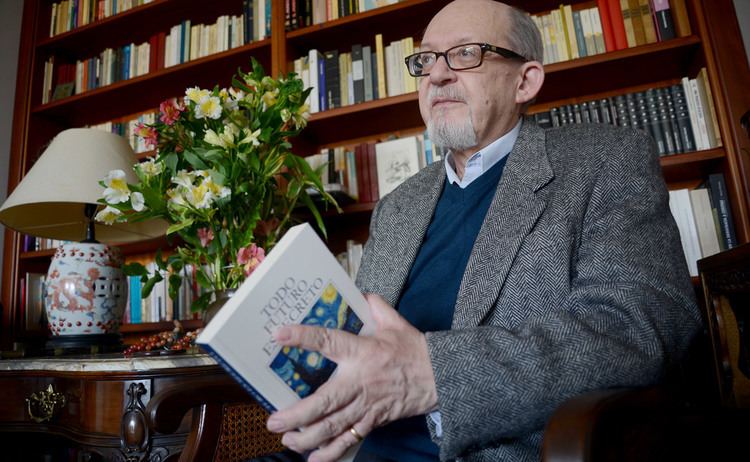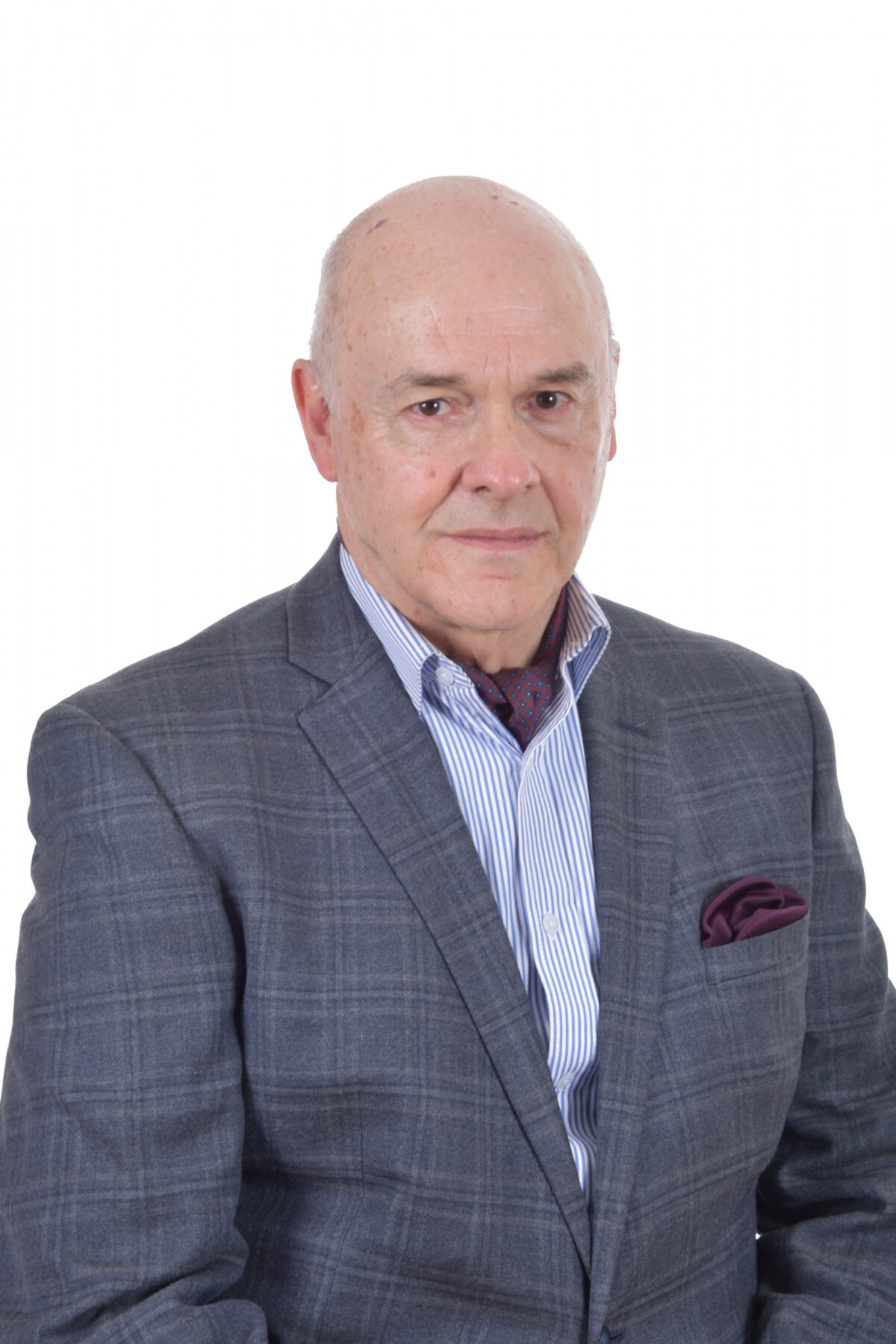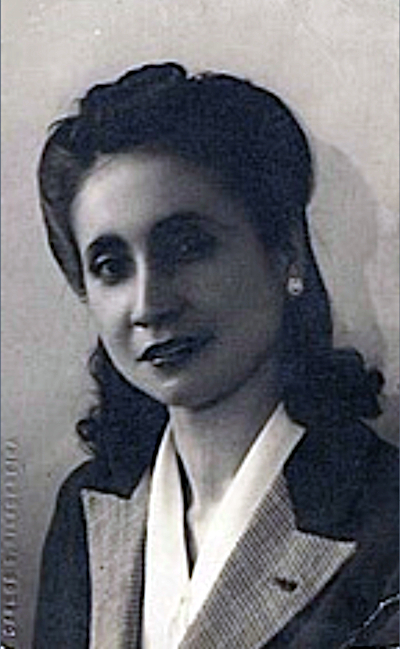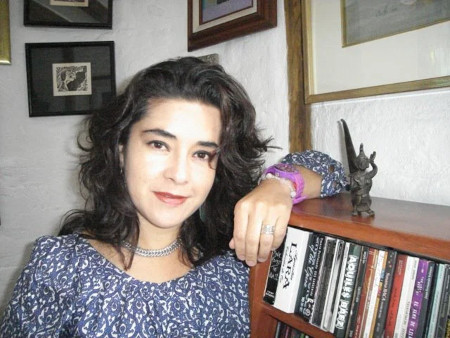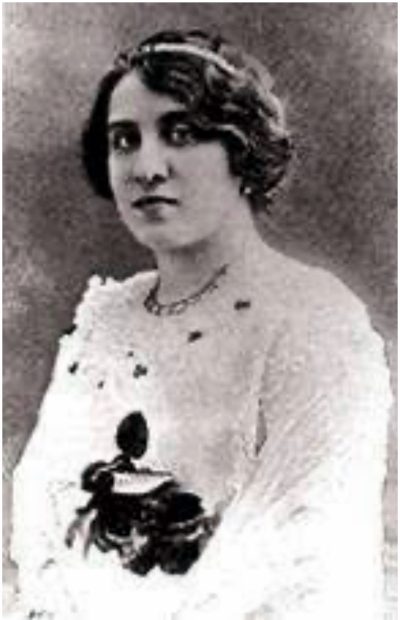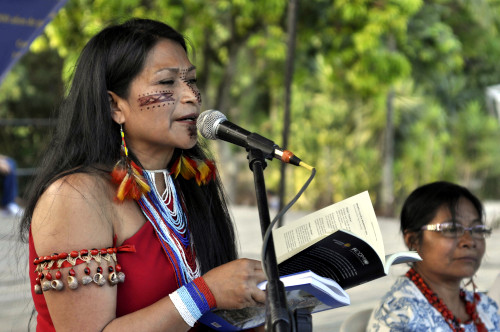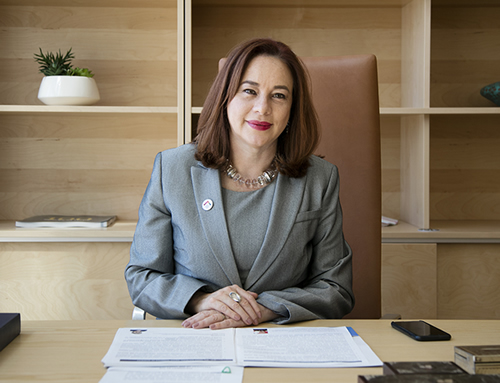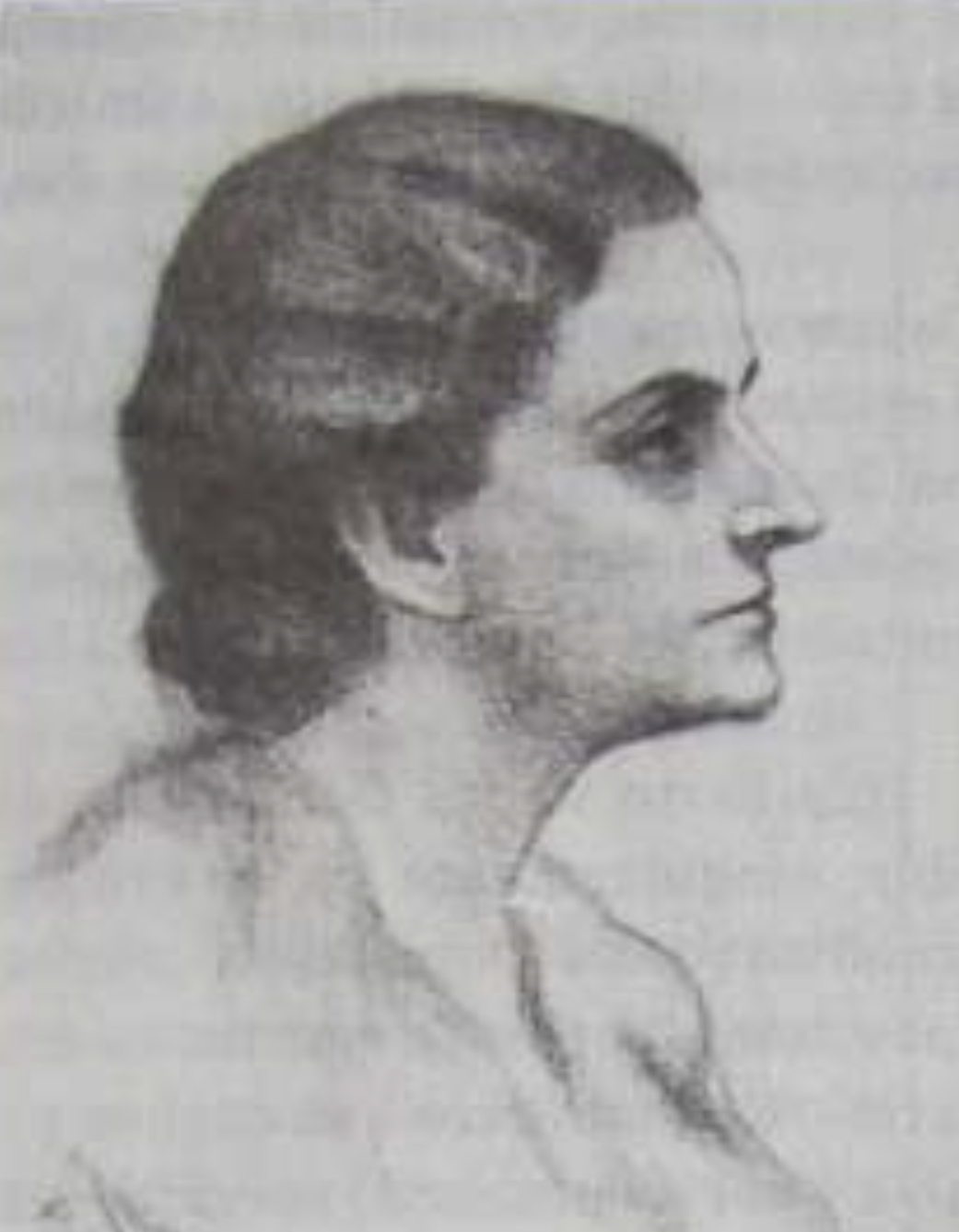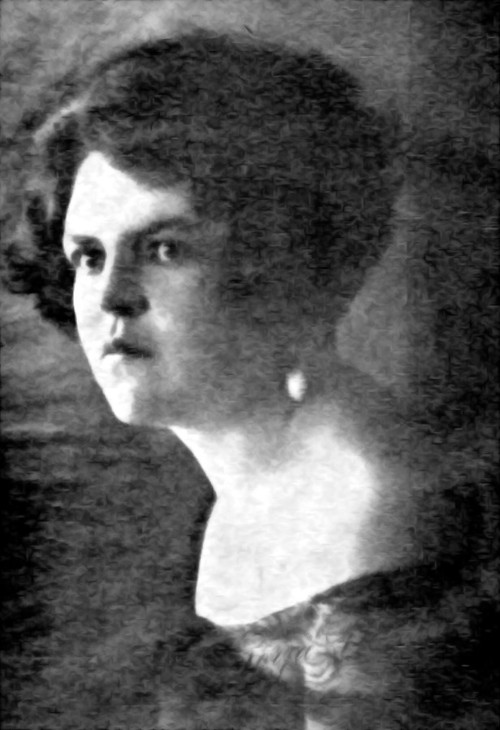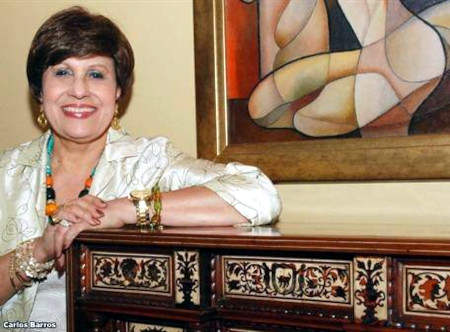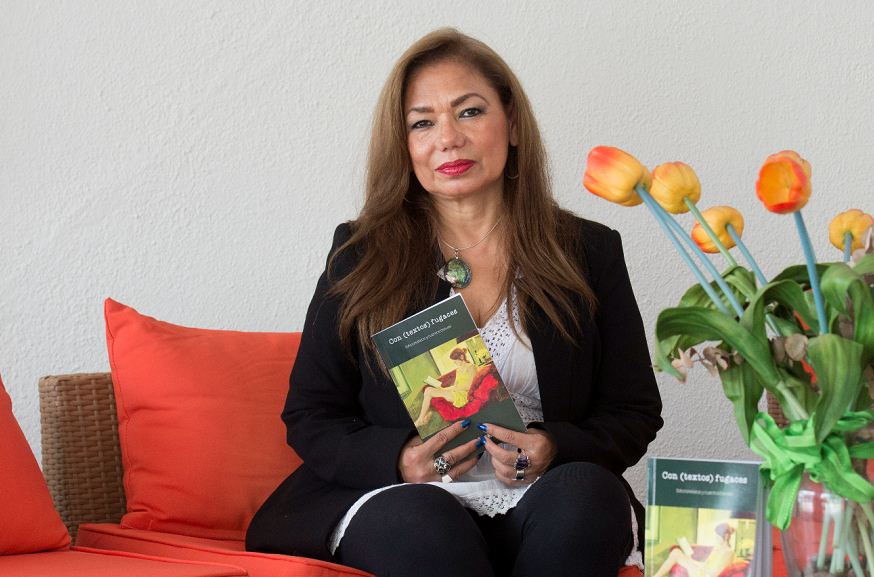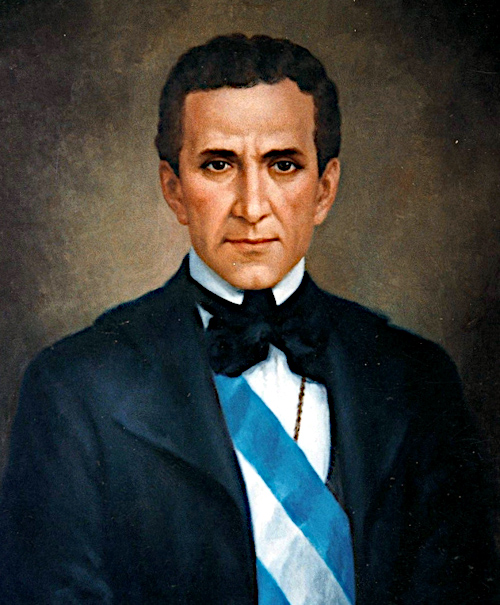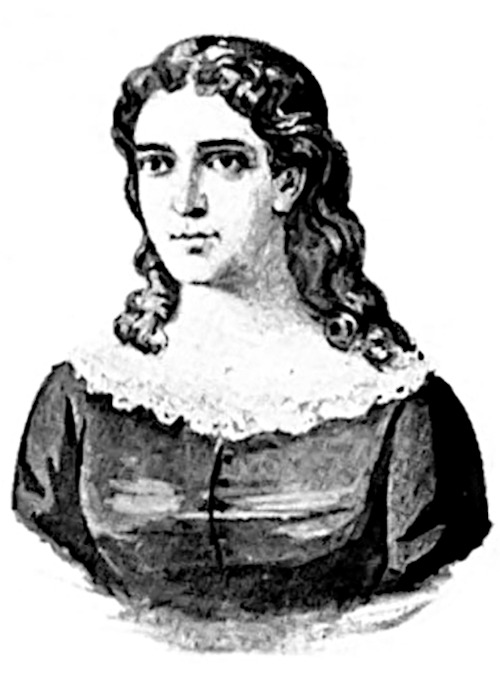Juan Andrade Heymann (Quito, December 18, 1945) is an Ecuadorian writer, novelist, short story writer, poet, and playwright. His short story El lagarto en la mano (1965) and his novel Las tertulias de San Li Tun (1993) expressed social change.
Continue reading “Juan Andrade Heymann”Author: richard
Luis Aguilar Monsalve
Luis Aguilar Monsalve (Cuenca, October 7, 1942) is an Ecuadorian writer, literary critic and university professor. He is a numerary member of the Ecuadorian Language Academy. He has written over 20 books of short stories. He also authored a novel titled “En busca de sor Edwina Marie” (2018). As editor, he published a Spanish/English bilingual anthology of Ecuadorian short stories. He has taught at universities in the United States and Ecuador. He is professor emeritus at Hanover College.
Continue reading “Luis Aguilar Monsalve”Raquel Verdesoto
Raquel Verdesoto Salgado de Romo Dávila
Continue reading “Raquel Verdesoto”Sonia Romo Verdesoto
Sonia Romo Verdesoto de Augustín is an Ecuadorian poet and diplomat. She was the only female member of the Tzantzismo movement in Ecuador during the 1960s. Verdesoto served as the Ecuadorian consul to Haiti.
Role in Tzantzismo
Sonia Romo Verdesoto was interviewed by Susana Freire García for the book Tzantzismo: tierno e insolente (2008; Tzantzismo: Tender and Insolent), where she discussed her role in the movement and its influence and effects on Ecuadorian culture
Works
Ternura del aire (1963).
Aleyda Quevedo Rojas
Aleyda Quevedo Rojas (Quito, 1972) is an Ecuadorian poet and journalist. She is regarded as an important voice in contemporary Latin American poetry. Among her best-known works are the poems “Algunas rosas verdes” (1996), for which she won that year’s Jorge Carrera Andrade Award, and “Soy mi cuerpo” (2006), in which she uses the human figure as an escape from the fears and anguish provoked by death. The latter book and another one, “Jardín de dagas” (2013), were translated into French. In 2017, the House of Ecuadorian Culture published the book “Cierta manera de la luz sobre el cuerpo,” a compilation of her poems up to that point.
Continue reading “Aleyda Quevedo Rojas“María Piedad Castillo de Levi
María Piedad Castillo de Levi (Guayaquil, July 6, 1888 – Quito, March 4, 1962) was an Ecuadorian writer, poet, journalist, and feminist. She fought for women’s suffrage and co-founded Nuevos Horizontes, a feminist magazine. Castillo studied at the Sorbonne in Paris and later worked for El Telégrafo Literario. A delegate to the Inter-American Commission of Women from 1940, she also joined the House of Ecuadorian Culture and traveled widely, contributing to international media. In 1962, her poetry collection Poemas de Ayer y de Hoy was published.
Continue reading “María Piedad Castillo de Levi”María Clara Sharupi Jua
María Clara Sharupi Jua (Morona Santiago, 1964) is an Ecuadorian writer, poet, and translator, who writes in Spanish and Shuar, an indigenous language of Ecuador’s Amazon basin. She writes poetry in Shuar, while translating it into Spanish in order to reach a wider audience. She co-wrote the book “Amanece en nuestras vidas” (2011), the first anthology of poetry from Ecuadorian indigeneous women writers, and wrote the short story collection “Tarimiat” (2019), which was written in Shuar, Spanish, and English. Sharupi Jua also works as a translator and radio and television presenter in Shuar and Spanish. She was a member of the translation team that worked on the official Shuar translation of Ecuador’s Constitution. She lives in Quito, where she has also worked for the Ministry of Foreign Affairs and Migration on indigenous issues.
Continue reading “María Clara Sharupi Jua”Karina Galvez
Karina Galvez (Guayaquil, July 7, 1964) is an award-winning poet with Ecuadorian and American citizenship. She has lived in Orange County, California since 1985. In 1995, she published her book “Karina Gálvez – Poesía y Cantares”[Karina Galvez – Poetry and Songs], which includes both English and Spanish versions of her poems with a prologue written by León Roldós Aguilera, Ecuador’s former vice president. She is also a songwriter and author of children’s poems and short stories. Her Spanish poems have been translated into English, French, Italian, Portuguese, Romanian, Bulgarian, Slovene, and Czech.
Continue reading “Karina Galvez”María Fernanda Espinosa
María Fernanda Espinosa Garcés (b. September 7, 1964, Salamanca, Spain) is an Ecuadorian politician, diplomat, writer, and poet affiliated with the political party PAIS Alliance. She holds the distinction of being the first woman to serve as Ecuador’s minister of national defense, the first woman to be appointed as Ecuador’s permanent representative to the United Nations in New York, and the first Latina woman to be elected as president of the UN General Assembly. Prior to her political and diplomatic career, she was an Associate Professor and Researcher at the Latin American Faculty of Social Sciences (FLACSO). Ms. Espinosa Garcés is also a prolific writer and poet, having published over 30 academic articles on various topics such as the Amazon River, culture, heritage, climate change, and foreign policy, among others. She has authored five volumes of poetry and was awarded the Ecuadorian National Poetry Prize in 1990.
Continue reading “María Fernanda Espinosa”Hipatia Cárdenas de Bustamante
Hipatia Cárdenas de Bustamante, also known as Aspacia (Quito, March 23, 1889 – Quito, February 9, 1972) was an Ecuadorian writer, politician, suffragist, and feminist. She was one of the pioneering defenders of women’s suffrage in Ecuador. In 1929, she became the first female Councilor of State, and in 1932, she became the first female candidate for the presidency. She fought for respect in the women’s right to vote in Ecuador after its approval in 1929 and the appearance of groups that were against it. In 1943 she published her book “Oro, rojo y azul,” and wrote for the newspapers El Día, El Comercio, and the magazine América.
Continue reading “Hipatia Cárdenas de Bustamante”Luz Elisa Borja Martínez
Luz Elisa Borja Martínez (Riobamba, May 15, 1903 – Riobamba, July 10, 1927) was an Ecuadorian poet, pianist, painter, and sculptor. In only 24 years of life, she amassed an extensive body of written work, which her brother Luis Alberto published after her death in two books titled “Cofre Romántico” and “La Bella Durmiente.” The second book contains the poem “Quiero Llorar” (I Mourn), which she wrote in 1918, at the age of 15, after the death of the mother superior of the Riobamba Sisters of Charity. It has seven stanzas, two of which became the lyrics for the Ecuadorian pasillo called “Lamparilla.” The music was composed by Miguel Ángel Casares Viteri, who was inspired by Borja’s poem and his dismay over the damage caused by a Chanchán River flood. Some of her original works can be found at the House of Ecuadorian Culture in Chimborazo.
Continue reading “Luz Elisa Borja Martínez”Rosa Amelia Alvarado
Rosa Amelia Alvarado Roca (1944, Guayaquil) is an Ecuadorian writer and poet. In 1964 she founded the Guayaquil-based magazine Hogar, which became the biggest women’s magazine line in Ecuador. From 1967 to 1972, she worked in television as the director of programming at Channel 2 in Guayaquil, specializing in the creation of cultural programs. She is the president of the Guayas branch of the House of Ecuadorian Culture, and is a member of the Ecuadorian Academy of Language. Her most notable poems include: “Añoranza,” “Cosas Absurdas,” “De lo profano (II),” “El sermón de la montaña” and “La vida va y viene.”
Continue reading “Rosa Amelia Alvarado”Aminta Buenaño
Aminta del Rosario Buenaño Rugel (Santa Lucía, Ecuador, September 27, 1958) is an Ecuadorian writer, journalist, diplomat, and politician. She is celebrated for her literary works that explore women’s experiences and feminist themes, with notable titles such as La mansión de los sueños (1985) and Mujeres divinas (2006). As vice-president of Ecuador’s Constituent Assembly, she played a pivotal role in drafting the 2008 Constitution, advocating for gender equality. Buenaño has also served as Ecuador’s ambassador to Spain and Nicaragua. Among her many accolades is the prestigious Jauja International Short Story Prize of Valladolid (1979). Her most recent novel, Un blues para Roberto (2022), delves into themes of love and loss, and was presented at the 2022 International Book Fair in Guayaquil.
Continue reading “Aminta Buenaño”José Joaquín de Olmedo
José Joaquín de Olmedo y Maruri (Guayaquil, March 20, 1780 – Guayaquil, February 19, 1847) was a notable Ecuadorian poet, first mayor of Guayaquil, and former president of Ecuador. In his poetry, Olmedo emphasized patriotic themes. His best-known work is La victoria de Junín: Canto a Bolívar (1825; “The Victory at Junín: Song to Bolívar”), which commemorates the decisive battle won there by the forces of the liberator Simón Bolívar against the Spanish armies. It is considered by many critics the finest example of heroic poetry written in Spanish America.
Continue reading “José Joaquín de Olmedo”Dolores Veintimilla
Ignacia María de los Dolores Veintimilla de Galindo (Quito, July 12, 1829 – Cuenca, May 23, 1857) was an Ecuadorian poet and essayist known for her contributions to 19th-century Romanticism and early feminist thought. Raised in an aristocratic family, she received a formal education and later married Colombian physician Sixto Galindo. Her poetry, marked by themes of sorrow, unrequited love, and social justice, reflected her personal struggles and progressive views, including her opposition to the death penalty. Isolated and vilified for her outspokenness, Veintimilla tragically took her own life at the age of 27.
Continue reading “Dolores Veintimilla”